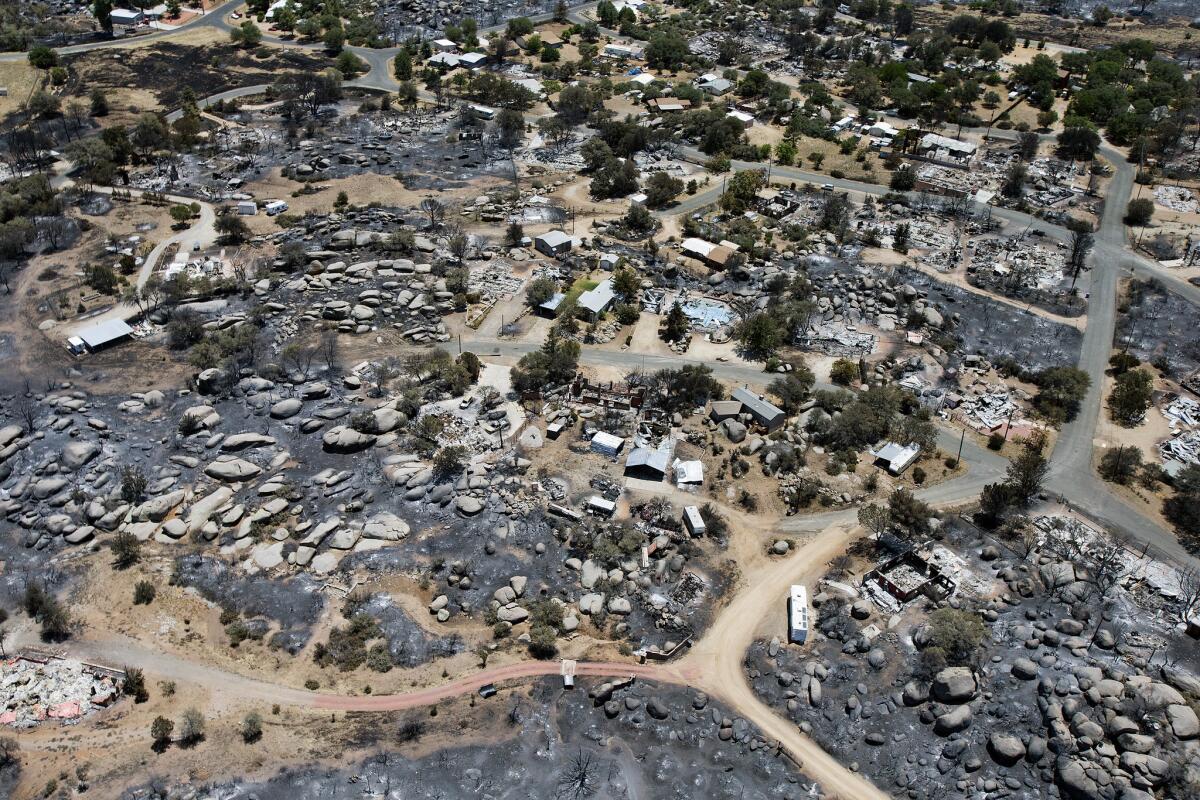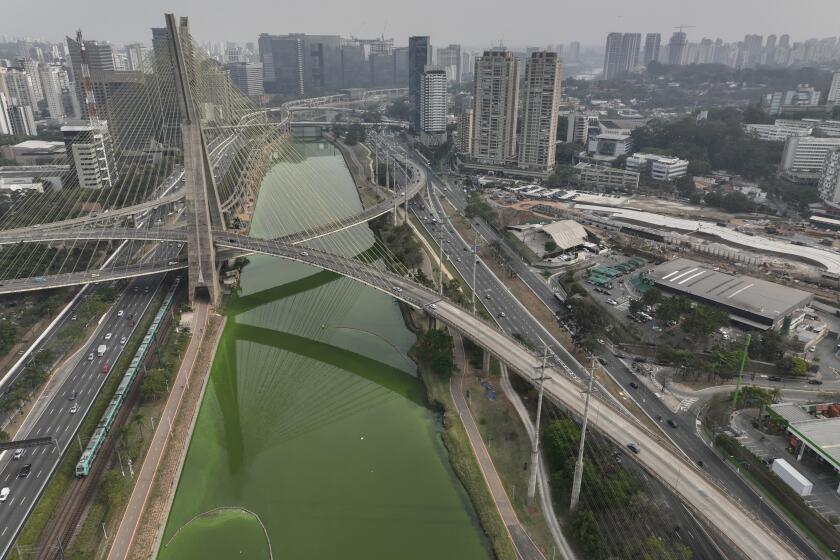Arizona fire: Report says most buildings lacked brush clearance

TUCSON — The Arizona city of Yarnell and its subdivision of Glen Ilah were not prepared for a wildfire like the inferno this month that claimed the lives of 19 elite firefighters, scorched 8,400 acres and destroyed more than 100 homes, according to a report released this week by a research group.
Using satellite images and mapping software, researchers at the Pacific Biodiversity Institute found that most of the 569 buildings in Yarnell did not have proper buffer zones — areas sufficiently cleared of chaparral, shrubs and trees.
Only 63 buildings had appropriate buffer zones — and 95% of them survived the fire, the group found.
PHOTOS: Yarnell Hill fire in Arizona
It had been about 40 to 45 years since a fire had burned in Yarnell and it was due, said Peter Morrison, executive director of the institute, which is based in Washington state.
“What happened there was totally predictable,” he said. “It was totally normal from an ecological perspective. We need to acknowledge that it was going to happen. It was inevitable.”
The Yarnell Hill fire was started by a lightning strike June 28. Two days later, 19 firefighters — members of the elite Prescott-based Granite Mountain Interagency Hotshot Crew — were killed when the blaze overran their position near Glen Ilah.
The lack of fire preparedness in Glen Ilah and Yarnell as a whole mirrors communities in fire-prone areas throughout the West, Morrison said.
“There are thousands of communities that are just poorly prepared,” he said.
The report raises concerns about whether the hotshot team should have been deployed into the area at all.
Surrounded by manzanita trees and other quick-burning fuels during a heat wave with low humidity, Yarnell faced a volatile situation, Morrison said.
“They were essentially surrounded by thousands, if not millions, of gallons of gasoline,” Morrison said of the firefighters. “From everything I’ve seen the firefighters should not have been put in that place.”
The Yarnell Fire Department did not respond to requests for comment on the report.
On Tuesday, Arizona’s Republican U.S. senators, John McCain and Jeff Flake, introduced a bill that would give federal agencies more incentive to hire outside companies to thin trees and vegetation on federal land.
Randy Eardley, spokesman for the National Interagency Fire Center, said he couldn’t comment on whether the hotshot crew should have been deployed, saying that the incident was under investigation.
However, he did say that residents in fire-prone areas needed to understand that federal, state and local fire departments cannot post a fire engine at every structure. Eardley said that clearing brush 30 feet away from a structure can make a huge difference.
“It would just be nice if people just recognized that living in those areas comes with some sort of responsibility and doing the things they need to do,” he said.
“There really is an attitude where, if there is a fire, that there is going to be an engine at my house that will help me,” Eardley said.
ALSO:
Detroit files for bankruptcy protection
Utah repeals legislation limiting feds from enforcing state laws
Rolling Stone cover leads to release of new photos of Tsarnaev arrest
Twitter: @thecindycarcamo
More to Read
Sign up for Essential California
The most important California stories and recommendations in your inbox every morning.
You may occasionally receive promotional content from the Los Angeles Times.











